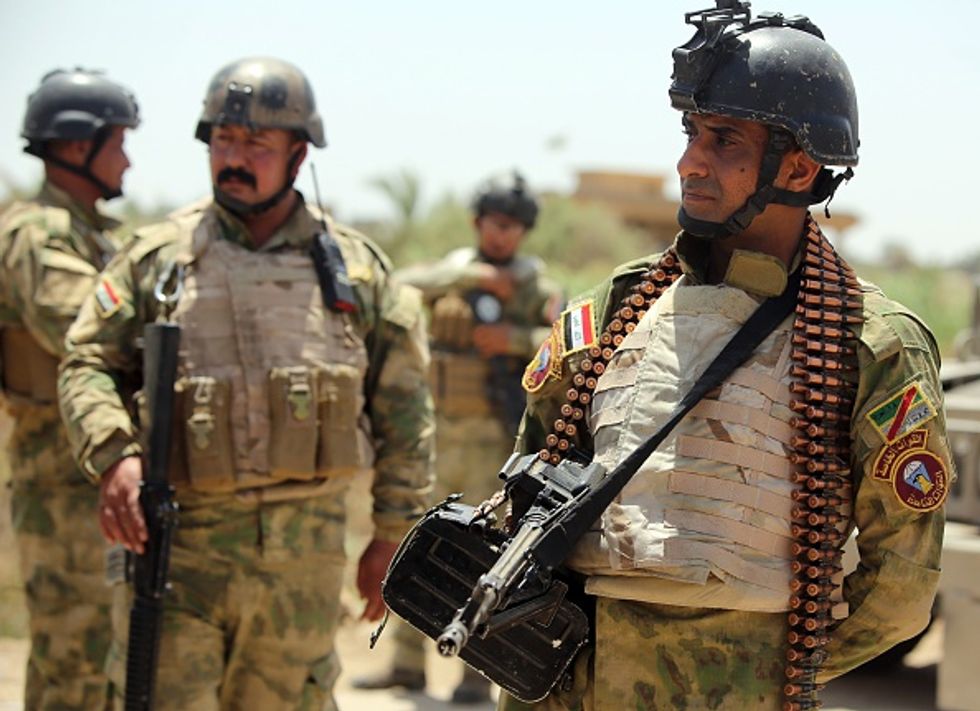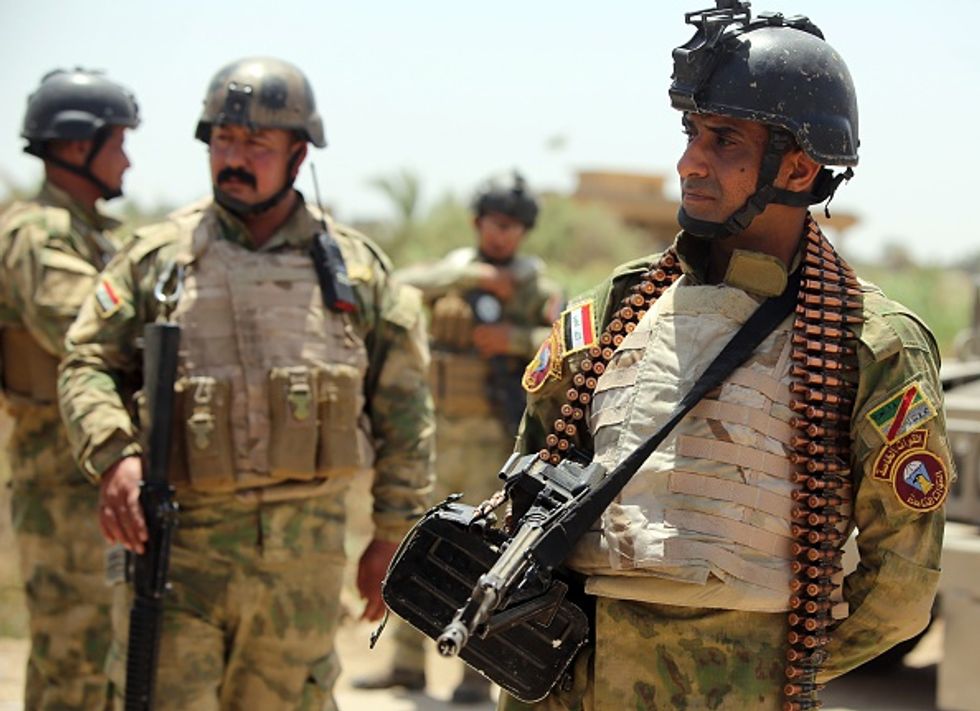WASHINGTON (AP) — The Islamic State group's takeover of Ramadi is stark evidence that Iraqi forces lack the "will to fight," Defense Secretary Ash Carter said, in the harshest assessment yet from a high-ranking Obama administration official of the U.S. effort to bolster Iraqi forces to retake their territory from extremist militants.
Iraqi soldiers "vastly outnumbered" their opposition in the capital of Anbar province but quickly withdrew from the city in Iraq's Sunni heartland, Carter said on CNN's "State of the Union." The interview aired on Sunday.
The Iraqis left behind large numbers of U.S.-supplied vehicles, including several tanks.
"What apparently happened is the Iraqi forces just showed no will to fight," Carter said. "They were not outnumbered; in fact, they vastly outnumbered the opposing force. That says to me, and I think to most of us, that we have an issue with the will of the Iraqis to fight ISIL and defend themselves."
Iraqi lawmaker Hakim al-Zamili, the head of the parliamentary defense and security committee, called Carter's comments "unrealistic and baseless," in an interview with The Associated Press.
"The Iraqi army and police did have the will to fight IS group in Ramadi, but these forces lack good equipment, weapons and aerial support," he said. "The U.S. officials should provide Iraq with advanced weapons as soon as possible instead of making such statements."
 Iraqi soldiers stand in the Garma district of Anbar province west of the Iraqi capital Baghdad, on May 19, 2015 as clashes continue with Islamic State (IS) group fighters. (Ahmad Al-Rubaye/AFP/Getty Images)
Iraqi soldiers stand in the Garma district of Anbar province west of the Iraqi capital Baghdad, on May 19, 2015 as clashes continue with Islamic State (IS) group fighters. (Ahmad Al-Rubaye/AFP/Getty Images)
The fall of Ramadi last Sunday has sparked questions about the effectiveness of the Obama administration's approach in Iraq, a blend of retraining and rebuilding the Iraqi army, prodding Baghdad to reconcile with the nation's Sunnis and bombing Islamic State group targets from the air without committing American ground combat troops.
Carter defended the use of U.S. airstrikes as an effective part of the fight against the Islamic State group, but he said they are not a replacement for Iraqi ground forces willing to defend their country.
"We can participate in the defeat of ISIL," he said. "But we can't make Iraq ... a decent place for people to live — we can't sustain the victory, only the Iraqis can do that and, in particular in this case, the Sunni tribes to the West."
Over the past year defeated Iraq security forces have repeatedly left U.S.-supplied military equipment on the battlefield, which the U.S. has targeted in subsequent airstrikes against Islamic State forces. The Pentagon this past week estimated that when Iraqi troops abandoned Ramadi, they left behind a half-dozen tanks, a similar number of artillery pieces, a larger number of armored personnel carriers and about 100 wheeled vehicles like Humvees.
Carter did not discuss any new U.S. tactics in the fight against Islamic State group.
U.S. lawmakers from both parties criticized the administration's strategy Sunday, urging a more aggressive posture.
Rep. Tulsi Gabbard, D-Hawaii, an Iraq war veteran, cast doubt on the U.S. preference to deal only with the Shiite-dominated government in Baghdad, calling instead for directly arming both the Kurds in the north and Sunni tribes that have asked for help in beating back the Islamic State group.
"These Iraqi security forces have cut and run," Gabbard said. "They cut and ran and dropped their weapons when they were faced with their first real battle with ISIS."
She criticized Baghdad's close links with Iran-backed Shiite militias that have declared themselves enemies of the United States.
Rep. Adam Kinzinger, R-Ill., called for the president to send in U.S. ground troops, a recommendation increasingly made by Republicans.
"We're not really engaged in this fight," he said. "This is a cancer that's growing in the Middle East. This is now a house on fire in a densely packed neighborhood, where it's going to extend to other places."
Rep. Mack Thornberry, R-Texas, chairman of the House Armed Services Committee, said he would prefer not to send U.S. ground forces, but said the U.S. has been "tying its hands" with an overly timid policy.
Even Obama administration allies were urging the president to do more.
"I think there is a major hesitation to get too deeply involved in Iraq again," said Michele Flournoy, a former senior Obama administration defense official. But, she said, "Particularly given the flow of foreign fighters...this is a terrorist problem that effects, us and we have to take a more forward leaning posture."
Gabbard, Kinzinger and Flournoy spoke on CNN's "State of the Union;" Thornberry appeared on ABC's "This Week."
___
AP writer Sameer Yacoub in Baghdad contributed to this report.

 Iraqi soldiers stand in the Garma district of Anbar province west of the Iraqi capital Baghdad, on May 19, 2015 as clashes continue with Islamic State (IS) group fighters. (Ahmad Al-Rubaye/AFP/Getty Images)
Iraqi soldiers stand in the Garma district of Anbar province west of the Iraqi capital Baghdad, on May 19, 2015 as clashes continue with Islamic State (IS) group fighters. (Ahmad Al-Rubaye/AFP/Getty Images)


